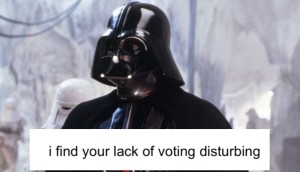“When someone shows you who they are, believe them the first time.”–Maya Angelou
I can’t even remember the first time our senator Sylvia Allen showed us who she was. Was it when she brought up the “fact” that the Earth is only six thousand years old during a senate discussion on uranium mining? Or when she suggested that church attendance should be mandatory? Maybe it was the time she tried to change the rules under which we investigate corrections employees while her son was under investigation for trading cigarettes for oral sex with female inmates? It certainly was much earlier than the time just last week when she gave a “thumbs down” gesture to the people—her constituents—who had filled the senate gallery to watch their senators “at work,” or the time after that when she introduced an amendment to lower the requirements for substitute teachers down to a high school diploma. (It passed, by the way.) No, Sylvia Allen has shown us who she is many, many times. And yet, she’s not the problem.
You are.
If you are reading these words and you are not registered to vote, you are the problem.
If you are registered to vote but your registration is no longer valid because you have moved (even across town), you are the problem.
If you are registered to vote and you choose not to vote because it isn’t convenient, or you forgot, or “it doesn’t matter anyway,” you are the problem.
The last argument is what gets me the most. How can you have watched the events of the last few weeks and still say it doesn’t matter? I know that you watched the teachers of our state—the ones you expect to take a bullet for your child, and who would—break down under the strain of more than a decade’s worth of neglect, and then, somehow, still manage to rise up. (Like Ms. Angelou also most famously said, “But still, like air, I’ll rise.”)
There is an oft-repeated internet meme going around that says, “I don’t know how to explain to you that you should care about other people.” The truth, however, is that there are no other people: there are only people, and they are all yours. And these people? Your people? You are hurting them every time you have a chance to change things, and you don’t. And yes, you, personally, do have a chance to change things. Elections much larger than our own have been and will be determined by a handful of votes—in the recent Pennsylvania election the decision of nearly a quarter of a million voters was ultimately decided by a little over six hundred votes. (Of course, those quarter of a million voters made up less than half of the registered voters in the state, so really the election was decided not by the people who showed up to vote, but by the people who essentially cast their vote for “I could not care less.”
Look at it this way: one time, when I was traveling with my then-teenage daughter Clementine, I eventually grew tired of her bored answer of “I don’t care” every time I asked her where she would like to stop to eat. And so I took her to a German restaurant. (Did I mention that she was vegetarian at the time?) The look on her face as she tried to navigate a menu that was 90% sausage was priceless. After that I never had any trouble getting her opinion about where we should stop to eat—oftentimes she offered it before I had even asked.
Hopefully something similar will happen this November with all the voters who heretofore stayed home on election day (or worse yet, didn’t bother to return their could-it-possibly-be-easier mail-in ballot). Hopefully all of those people were paying enough attention these last few weeks to all of the sausage on the menu at our state capitol to finally decide that maybe, just maybe, they do have an opinion after all.
That maybe, after all the times that Sylvia and her pals showed us exactly who they were, it was time for us to show them who we were instead.
And vote them out.

